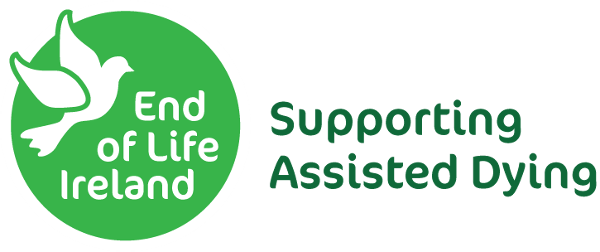End of Life Ireland (EOLI), a group campaigning for the legalisation of euthanasia, held a public meeting in Dublin last week to present their views. It was a revealing insight into their objectives and how to get there.
The main speaker was Greg Mewett, a palliative care doctor from Australia who believes that patients have a right to end their lives. He admitted that this view is quite “heretical” among palliative care circles. (The Irish Association for Palliative Care is opposed to ‘assisted dying’. You can find their document on the matter here).
Dr Mewett said that “voluntary assisted dying” should not be seen in opposition to palliative care as more than 80% of patients who wish to end their lives have gone through some form of palliative care before.
He stressed the importance of language in trying to convince people, saying that euthanasia or assisted suicide are bad terms, while the word “voluntary” is key.
He wants the law in Australia changed so that doctors can offer patients the option of assisted suicide.
One of the local speakers was John Wall, an Irish campaigner who said he was able to convince the Government to change the definition of ‘terminal illness’ and, as a consequence, to extend the eligibility for a medical card to those who are given a prognosis of up to 24 months.
He believes that ‘assisted dying’ is simply a matter of choice, and it should be available even for prognoses longer than 24 months. He claimed that the life span of 6 months or shorter, which is common in other jurisdictions that allow euthanasia, is too short. “How long do you want me to suffer?”, he asked.
Another speaker was Dr Brendan O’Shea, a GP from Kildare. He is former head of the Irish College of General Practitioners and was representing on this occasion a group of about 100 healthcare professionals, mainly GPs, working with End of Life Ireland. They call themselves ‘Irish Doctors supporting Medical Assistance in Dying’ and believe that ‘patient autonomy’ should be always respected, even when patients wish to be killed.
All the Irish medical bodies that have taken a public position on this topic are of the opposite view.
Doctors are probably the major opponents to changes in legislation in this area. When, during the debate, someone pointed out that the Hippocratic Oath clearly rejects euthanasia, Dr O’Shea replied that nowadays Hippocrates would have written a different oath. We cannot know this, of course, and it is hard to see why, as suffering is a permanent feature of the human condition and pain was far less treatable by doctors in Ancient Greece than it is today.
EOLI on their website acknowledge that “it can be difficult for healthcare professionals to publicly support providing Medical Assistance in Dying.” To help their campaign an anonymous register of healthcare professionals has been created.
Another speaker was Tom Curran from Exit International, which is probably the most radical pro-assisted suicide organisation in the world, as they believe that it should be available to any mentally competent adult, for whatever reason.
Mr Curran, partner of the late Marie Fleming whose request for assisted suicide was rejected by the Supreme Court, told the audience of how he helped to draft legislation in this area.
Justin McKenna, a solicitor that deals with health cases, also spoke. Michael Nugent of Atheist Ireland, who could not attend, sent a video showing full support for the event.
The public meeting was attended by about 60 people, mostly sympathetic with the aims of the organisers. During the debate following the presentations only a couple of interventions showed some concern. A man suggested caution and mentioned how the slippery slope has operated in other countries, such as Canada, after assisted suicide has been legalised.
The organisers are very confident that the general population and most politicians are on their side and will hold similar events in the future. In 2024 they will host the World Federation of Right to Die Societies conference.
Those opposed to assisted suicide needs to be as well organised as its proponents.

















